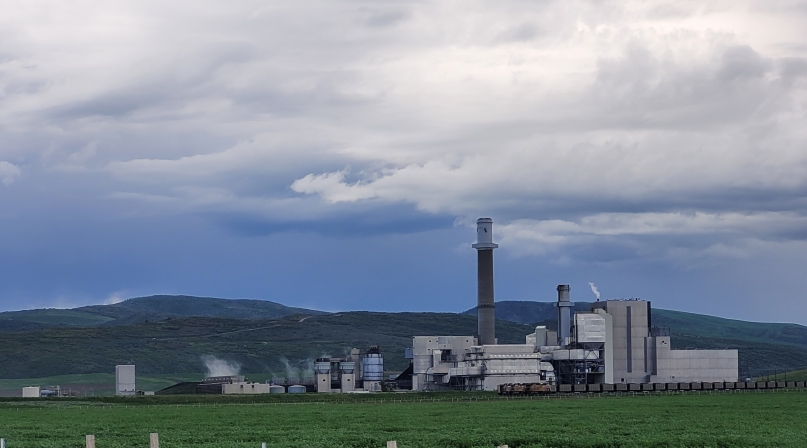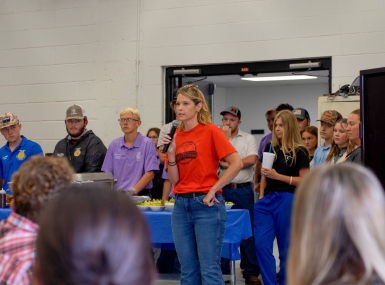Coal Power Plant Closures Spur Regional Response in Northwest Colorado
Upcoming Events
Related News

Key Takeaways
The three counties that form the northwest corner of Colorado — Moffat, Rio Blanco, and Routt — share a history shaped by the coal, oil and natural gas industries. As the coal industry declines across the region, they now also share the same economic challenges.
Routt County’s Steamboat Springs has built a diverse agricultural and tourist economy from snowy peaks and outdoor recreation, but the economic drivers of nearby communities continue to be tied to that same energy history. A mix of agriculture, mining and energy production can be seen in Hayden (Routt County), Craig (Moffat County) and Rangely (Rio Blanco County).
In early 2020, the official news broke that the owners of Craig Generating Station Unit 1 and Hayden Generating Station were permanently shutting the power stations down. Craig Station is now expected to fully close all three of its units by 2028, while Hayden Station has had its planned final closure date moved forward from 2036 to the same year. To communities shaped by these stations, those announcements put a clock on efforts to pursue economic diversification, revenue replacement and workforce training. That same anxious uncertainty is one you can find in coal communities across the nation.
Recognizing the challenge ahead of them, local leaders began to coordinate and mobilize. A foundation for their partnership existed in the Yampa Valley Economic Development Council, named for the river valley that begins in Routt County and snakes through Moffat. Considering the scale of their mission and the impact of the pandemic, leaders pursued a rebrand, forming the Northwest Colorado Regional Development Council (NWCDC) and adding several new communities to their ranks. The NWCDC pursued help from the U.S. Economic Development Administration (EDA) and the Colorado Department of Local Affairs (DOLA). That help came with funding for the creation of the Colorado COVID-19 Regional Resiliency and Recovery Roadmaps Program, which provided a foundation for continuing regional level planning and collaboration. The NWCDC has championed regional collaboration and investment ever since, and communities can now look to Moffat, Rio Blanco, and Routt for guidance and inspiration. You can read more about the NWCDC’s governing structure here.
Moffat County Commissioner Melody Villard, an NWCDC representative, celebrates their ongoing work.
“The ability to have a structure that sets clear expectations for the leaders in our communities in the spirit of cooperation, and the ability to have a dedicated staff member to keep all of the parts in focus, has ensured that we are moving forward.”
Commissioner Villard is also a member of NACo’s Building Resilient Economies in Coal Communities (BRECC) Leadership Commitment Coalition. An EDA-backed program newly entering its second year, BRECC supports the work of coal counties pursuing economic diversification, while the Coalition provides a peer-learning network for leaders facing the same challenges being confronted by the NWCDC.
Their work has been shaped by the Northwest Colorado Resiliency and Recovery Roadmap. The NWCDC used the funding and support of its backers to develop the document, which aspires to the realization of a thriving, diverse economy anchored in outdoor recreation, generation of renewable power for communities in the western United States and continued development in agriculture and manufacturing.
Eager to transition from planning to implementation, NWCDC leaders applied for a DOLA Rural Economic Development Initiative (REDI) grant. Like many state grants, a match was needed. Voting members of the NWCDC conducted a tiered collection of matching funds, based on local annual revenue, and were matched by funds from Colorado’s Office of Just Transition (OJT). The NWCDC now plays a critical role in discussing, coordinating and approving the use of those grant funds for the implementation of Roadmap projects.
The results of this regional focus are encouraging. The NWCDC has allowed three counties with similar problems to punch above their weight, finding success in identifying solutions, acquiring funding and using it. Through Roadmap projects, the region has already entered the planning stages for 14 new businesses, two larger energy projects, and the expansion of several existing businesses. Local leaders project 482 new jobs in key target industries for their economic diversification strategies: clean energy, agriculture, light manufacturing, healthcare and others.
Throughout this work, the NWCDC has pursued other opportunities to support their transition. After being selected for the first cohort of BRECC’s Action Challenge at the start of 2023, they were partnered with the Colorado-based nonprofit Community Builders. The two organizations have worked together to refine economic transition strategies and pursue opportunities that align with the existing Roadmap. A top priority: bolstering NWCDC’s capacity to unify its efforts across all three transitioning counties.
Dedication to that partnership and regional response has carried them a long way and looks likely to carry them even further. If you ask Tim Redmond, Routt County commissioner and chair of the NWCDC, working together isn’t a sound-bite. It’s an edict. Their successes speak to the value of that lesson.
“Regionalism has set us apart. The NWCDC allows communities with different goals to come together and work together, while still respecting each community’s individuality.”
Related News

Inland port offers opportunity for Hertford County, N.C.
Hertford County, N.C. doesn’t have a lighthouse, but that hasn’t stopped its economic future from shining thanks to what became known as Project Green Lantern.

Chamber of commerce program helps keep workers on the job
Audrain County, Mo.'s Workforce Resource Assistance Program has helped employers keep staff in place, reducing turnover and promoting stability.

County leadership guides shared prosperity
There’s no chicken-or-egg debate: Economic mobility is not just a byproduct of growth — it is the result of intentional county governance.